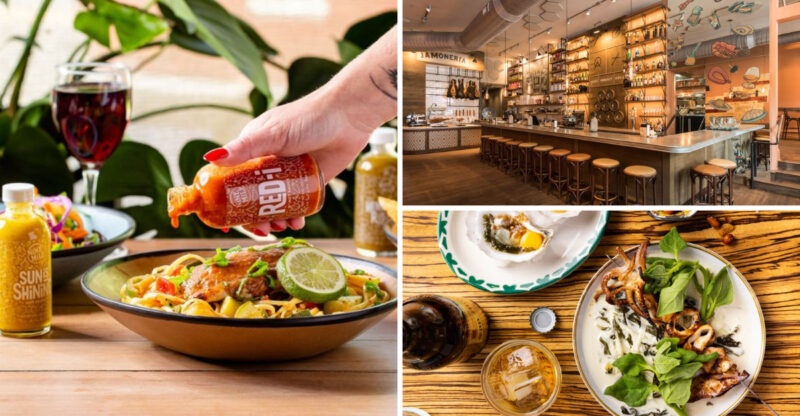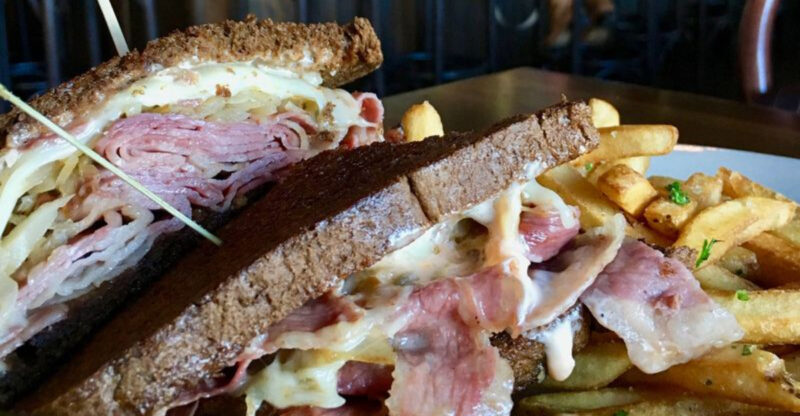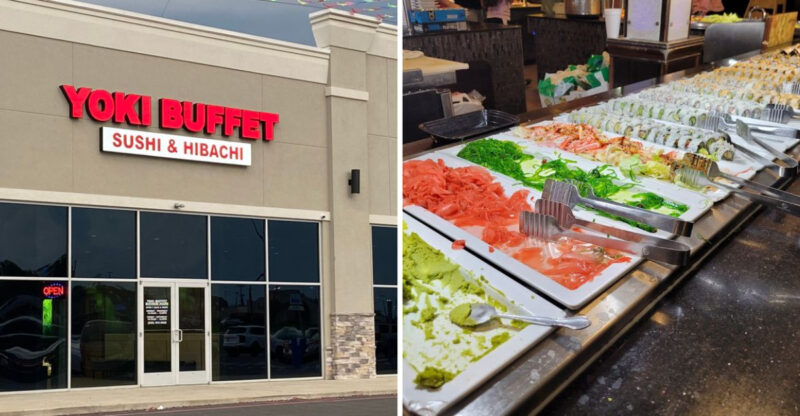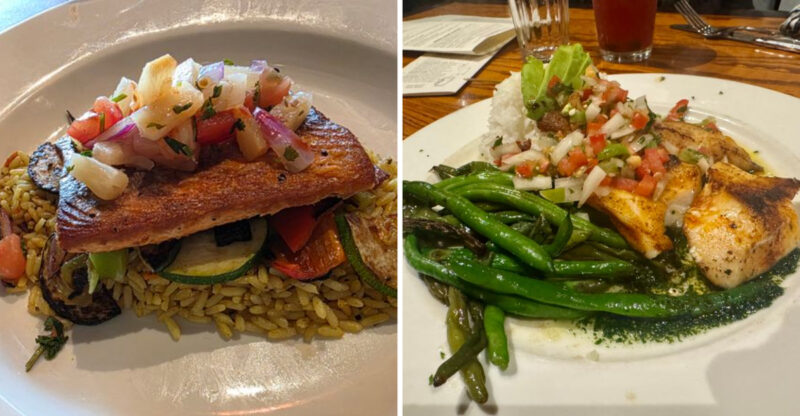20 Old-School New York Table Habits Kids Today Wouldn’t Believe
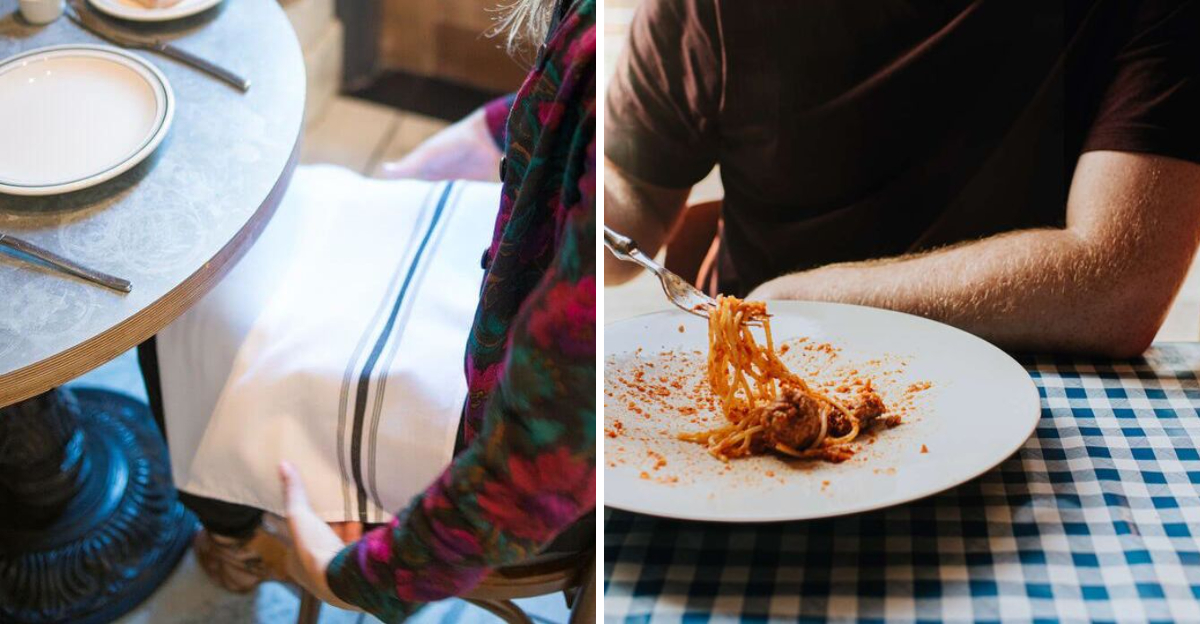
Growing up in New York meant following strict dinner table rules that shaped how families ate together. These traditions kept everyone connected, respectful, and present during mealtime.
Modern kids would probably think these customs were from another planet, but they created structure and togetherness that many families miss today.
1. Everyone Sat Down Together
This wasn’t a suggestion, it was the law of the land. Everyone Sat Down Together meant Dad stopped reading the paper, Mom left the kitchen, and kids abandoned whatever they were doing. No staggered eating schedules or grabbing plates to eat in your room.
The table became command central every single night. You showed up on time or faced consequences that made you rethink your priorities real quick. Families actually talked, argued, laughed, and connected without a screen in sight.
2. No TV During Dinner
Where the television lived in the other room, completely off limits during mealtime. No TV During Dinner was sacred, non-negotiable, and honestly kind of brutal when your favorite show aired at six o’clock. You learned to schedule your life around dinner, not the other way around.
The silence felt weird at first, then you got used to actual human voices. Conversations happened because there was literally nothing else to do. Your parents asked about school, and you actually had to answer with real words.
3. No Phones At The Table
Though the phone might ring during dinner, nobody dared answer it. No Phones At The Table applied to that chunky landline hanging on the kitchen wall, and you’d let it ring until the answering machine picked up. Telemarketers could wait, and so could your chatty friend calling about homework.
Your parents made it clear that whoever was calling could leave a message. Dinner time belonged to the family, period. Modern kids with smartphones glued to their palms would absolutely lose their minds under this rule.
4. Kids Waited To Speak
Did you have something to say? Too bad, because Kids Waited To Speak meant adults finished their conversations first. You sat there bursting with your exciting news about the playground, but patience was mandatory. Interrupting earned you the look, and trust me, you didn’t want the look.
However, this taught respect and timing in ways nothing else could. You learned to read the room and pick your moment. When you finally got to talk, people actually listened because you’d earned your turn at the microphone.
5. You Ate What Was Served
This rule crushed dreams and built character simultaneously. You Ate What Was Served meant no negotiations, no substitutions, no ordering off menu.
Mom cooked one meal for everyone, and your personal preferences didn’t factor into her decision making process whatsoever.
Hated Brussels sprouts? Tough luck, eat them anyway or go hungry. The kitchen wasn’t a restaurant with a kids menu featuring chicken fingers every night. You developed an appreciation for different foods or you sat there staring at your plate until bedtime approached.
6. Bread And Butter Starter
When dinner wasn’t quite ready, Bread And Butter Starter appeared like magic to keep everyone satisfied. A basket of sliced white bread and a butter dish landed on the table, and you could have one or two pieces while waiting for the main event. Nothing fancy, just carbs and dairy doing their thing.
Are kids today even familiar with this pre-meal tradition? The bread wasn’t artisanal sourdough from a trendy bakery. Wonder Bread ruled supreme, and that butter better have been spread edge to edge for maximum enjoyment.
7. Kids Cleared The Table
Hence the meal ending didn’t mean freedom arrived immediately. Kids Cleared The Table was your post-dinner job, and nobody escaped this responsibility.
You stacked plates, gathered silverware, and transported everything to the kitchen while adults relaxed with coffee. Democracy didn’t exist in this system.
Your contribution to family life started early and often. Scraping plates into the trash, rinsing dishes, wiping down surfaces became second nature. Modern kids with parents who do everything for them missed out on learning basic life skills and responsibility.
8. No Elbows On The Table
However ridiculous it seemed, No Elbows On The Table was enforced like a military regulation. Rest your elbows while eating and someone would immediately call you out. Wrists could touch the table edge, but those pointy joints needed to stay suspended in air somehow.
Why did this matter so much? Posture, manners, and looking civilized while shoveling food into your face.
Your grandmother probably invented this rule centuries ago, and every generation since suffered under its bizarre tyranny. Proper etiquette trumped comfort every single time at New York dinner tables.
9. Ask To Be Excused
This simple phrase held enormous power over your freedom. Ask To Be Excused meant you couldn’t just bolt from the table when you finished eating. You sat there, waiting until everyone else finished, then formally requested permission to leave. The answer wasn’t always yes either.
Sometimes parents made you wait longer just because they could. Teaching patience and respect through mealtime rituals shaped how kids understood family hierarchy.
You learned that leaving the table was a privilege granted, not a right automatically given when your plate looked clean enough.
10. Assigned Seats Every Night
When you walked into the dining room, Assigned Seats Every Night meant you knew exactly where to park yourself. Dad sat at the head, Mom usually opposite or nearby, and kids occupied their designated spots without question. Musical chairs wasn’t happening at dinner time.
Are modern families this organized about seating arrangements? This created order and predictability that made mealtimes run smoothly.
Everyone had their spot, their space, their little territory at the table. Trying to sit somewhere else just to mix things up would earn confused looks and immediate correction.
11. Milk Or Water Only
Though you might have dreamed of soda with dinner, Milk Or Water Only was the beverage law. No juice boxes, no sugary drinks, no negotiating for something more exciting. You got a glass of cold milk or plain water, and you drank it without complaining if you knew what was good for you.
Milk built strong bones, according to every parent in New York. Water kept you hydrated without rotting your teeth. Soda was reserved for special occasions like birthday parties or restaurants.
Your dinner table wasn’t a convenience store where you could grab whatever sounded good.
12. Napkin On Your Lap
Where that square of fabric belonged was crystal clear from day one. Napkin On Your Lap happened immediately after sitting down, before food even appeared. You unfolded it, spread it across your legs, and used it to wipe your mouth like a civilized human being throughout the meal.
Forgetting this step meant someone would remind you real quick. Paper or cloth, didn’t matter which, just get it on your lap.
Modern kids probably use their sleeves or the back of their hands instead. Learning proper napkin etiquette separated the refined from the barbaric at New York tables.
13. No Talking With Full Mouth
Did you just try to speak while chewing? Big mistake, because No Talking With Full Mouth was absolutely non-negotiable. You chewed, swallowed completely, then opened your mouth to share your thoughts.
Anything else was disgusting and got you scolded immediately by whoever witnessed your gross behavior. Hence you learned to time your eating and talking carefully.
Take smaller bites so you can finish chewing faster when a conversation requires your input. Nobody wanted to see partially chewed food or hear muffled words through a mouthful of meatloaf during family dinner time.
14. Say Grace First
This happened before a single fork touched a single plate. Say Grace First meant everyone paused, bowed heads, folded hands, and someone offered thanks for the food. Whether you were religious or just following tradition, this moment of gratitude started every meal without exception in many households.
Your stomach might have been growling like crazy, but patience was required. The prayer could be long or short depending on who led it.
Modern families rarely practice this ritual anymore, rushing straight into eating without acknowledging where their food came from or who prepared it.
15. Home-Cooked Meals
Are you ready for this radical concept? Home-cooked meals happened almost every single night without fail.
Takeout was rare, delivery apps didn’t exist, and someone actually stood in the kitchen cooking real food from scratch. Pots bubbled on the stove, the oven heated up, and dinner emerged from actual ingredients.
Fast food wasn’t the default option when everyone felt tired. Cooking at home saved money and kept families healthier overall. Kids today grow up thinking meals come from restaurants or arrive in bags at the door, missing out on kitchen smells and home cooking traditions entirely.
16. Iceberg Salad & Casseroles
Back in the day, fancy salads meant a wedge of iceberg lettuce with Thousand Island dressing drizzled on top. Nobody talked about arugula or kale because those weren’t even on the radar. Casseroles ruled the dinner table, with tuna noodle and green bean varieties appearing multiple times each week.
New York families stretched their budgets with these hearty, filling dishes that fed everyone without breaking the bank. Kids today might wrinkle their noses at the thought of canned soup mixed with noodles, but back then it was comfort food. Presentation didn’t matter much, taste and fullness did.
These simple meals brought families together without fuss or fancy ingredients from specialty stores.
17. Seconds Were Earned
Asking for seconds before finishing everything on your plate? That simply didn’t happen in old-school New York homes. Parents made it crystal clear that you earned extra helpings by cleaning your plate first, no exceptions allowed.
This rule taught kids not to waste food and to appreciate what they had in front of them. Going back for more meant you genuinely enjoyed the meal and weren’t just being picky or wasteful. Some families even required you to wait a few minutes after finishing to make sure you were truly still hungry.
Today’s kids often serve themselves buffet-style and take what they want whenever they want it. The old way built discipline and gratitude into every single meal shared together.
18. Dessert Was Rare
Sweet treats after dinner weren’t an everyday thing like they are now. Dessert appeared only on special occasions, birthdays, holidays, or when company came over for supper. Most nights ended with the main meal, and kids knew better than to ask for something sugary afterward.
When dessert did show up, it was usually something simple like canned fruit cocktail, Jell-O, or pound cake from the bakery. Homemade pies came out for Sunday dinners, making them feel extra special and worth the wait.
This habit kept sugar consumption low and made treats genuinely exciting rather than expected. Kids today often assume dessert follows every meal, but that luxury wasn’t standard in old New York households at all.
19. Leftovers Tomorrow
Nothing went to waste in a traditional New York household, and leftovers had a guaranteed spot on tomorrow’s menu. Moms carefully packed up whatever remained from dinner into Tupperware containers that went straight into the fridge.
Complaining about eating the same meal twice wasn’t tolerated, you ate what was available. Some families even planned leftover nights where everything got reheated and served again without apology.
Monday’s pot roast became Tuesday’s beef sandwiches, and Sunday’s chicken turned into Wednesday’s soup.
This practice stretched grocery budgets and taught kids that food had value beyond the first serving. Modern families often toss leftovers or forget about them entirely, but that would have shocked any old-school New York parent.
20. Thank The Cook
Before leaving the table, every child had to thank whoever prepared the meal, usually Mom, but sometimes Dad or Grandma. This wasn’t optional or something you did only when the food tasted amazing. Gratitude was expected after every single dinner, no matter what was served.
Parents believed this simple act taught respect and appreciation for the hard work that went into cooking. Even if you didn’t love the liver and onions, you still said thank you because someone spent time and effort feeding you.
Many New York kids grew up with this phrase automatic in their vocabulary before being dismissed from the table. Today’s families rarely enforce this tradition, but it builds character and manners that last a lifetime.

